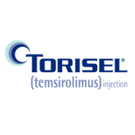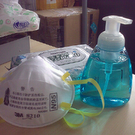Articles in the Headline Category
Headline, News »

In a recent Phase 2 study, Torisel (temsirolimus) showed little ability to reduce blood and urine levels of abnormal monoclonal protein (known as “M” protein) in relapsed multiple myeloma patients. The results were published in the November issue of the journal Leukemia Research.
Despite recent advancement in treatment options, many myeloma patients relapse and experience disease progression. Therefore, the search continues for new alternatives to treat the disease, especially for patients where previous therapy has proved unsuccessful.
Torisel, a drug …
Headline, News »

The 51st annual meeting of the American Society of Hematology (ASH) kicks off in two weeks in New Orleans. The meeting will feature presentations on the latest in peer-reviewed multiple myeloma research, December 5 through December 8.
ASH annual meetings keep hematologists up to date on research and treatment advances from the past year. According to ASH, the meeting has “a superb educational program,” “cutting-edge scientific sessions,” and presentations that “contain the latest and most exciting developments in scientific research.” …
Headline, News »

Vitamin C (ascorbic acid) significantly reduces the activity of Velcade (bortezomib) in treatment of multiple myeloma, according to a recent article published in Nature.
Several preclinical studies suggest that vitamin C, which is one of the most common dietary supplements for cancer patients, increases the efficacy of cancer drugs and decreases treatment-related side effects. However, more recent studies show that vitamin C can counteract the activity of certain cancer chemotherapy agents, including Velcade, in the body.
Velcade, the first …
Headline, News »

In the July issue of Current Opinion in Hematology, Dr. Donna E. Reece of the Princess Margaret Hospital in Toronto, Canada reviewed the current approaches to treating newly diagnosed multiple myeloma patients.
In the review, Dr. Reece discussed autologous and allogeneic stem cell transplants for younger patients and treatment options for older patients. This Beacon article focuses on Dr. Reece’s findings about allogeneic stem cell transplants. Findings about autologous stem cell transplants were discussed in a previous Beacon article. …
Headline, News, Resources »

Individuals with multiple myeloma are recommended to get both the H1N1 (“swine flu”) vaccine and the seasonal flu vaccine. In particular, most myeloma patients are advised to get the shot version of the H1N1 vaccine.
About The H1N1 Flu
The H1N1 flu, also referred to as “swine flu,” has caused thousands of hospitalizations and more than 600 deaths in the United States since it was first detected in April 2009.
It is spread through person-to-person contact, often by sneezing or …
Headline, News »

As many multiple myeloma and other blood cancer patients know, it is illegal to pay bone marrow donors. But last week, the Institute for Justice (IJ) filed a lawsuit to overturn this ban. If the IJ is successful, physicians, donors, and especially patients may be significantly affected.
The IJ reports that more than 1,000 Americans die each year waiting for a donor match. “Myeloma patients are among those who need a transplant,” said Jeff Rowes, the IJ’s lead attorney on …
Headline, News »

Many important advances in the treatment of multiple myeloma have been made in recent years. In the July issue of Current Opinion in Hematology, Dr. Donna E. Reece of the Princess Margaret Hospital in Toronto, Canada reviewed the current approaches to treating newly diagnosed multiple myeloma patients.
In the review, Dr. Reece discussed autologous and allogeneic stem cell transplants for younger patients and treatment options for older patients. This Beacon article focuses on Dr. Reece’s findings about autologous stem cell …

